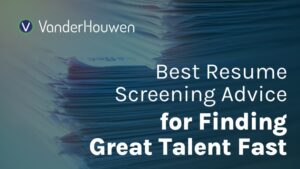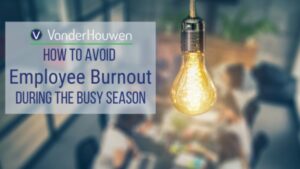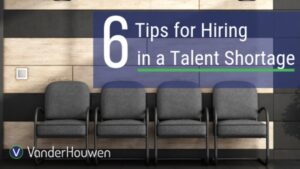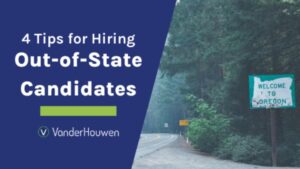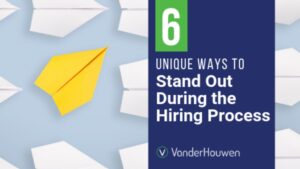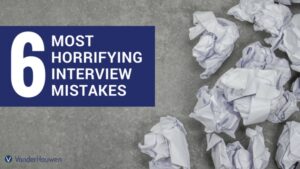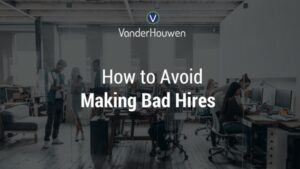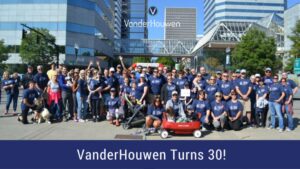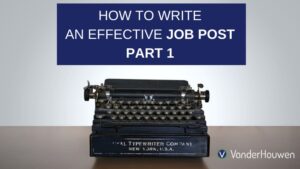What Not to Do When Applying For a Job
Whether it’s writing cover letters, formatting your resume, or prepping for interviews, as a job seeker the process of researching, applying, and ultimately getting hired requires a lot of time and effort. But before the pre-screening calls, the phone and in-person interviews, and the post-interview follow up emails, nailing the job application process is vital to make your name stand out among other potential candidates.
Are you in the process of applying for a new position? Don’t run into the common roadblocks we’ve seen candidates make during their job hunt. From embarrassing oversights to major application faux pas—here’s our advice on what you should NOT do when applying for a job.
Submit a resume with typos.
Hiring managers receive hundreds of resumes every day and often have only a few moments to review and assess a candidate’s fit. A typo-free and easy-to-read resume demonstrates that you pay attention to the details, are thorough, and that you’ve spent quality time preparing for the opportunity. If you don’t bother to review and edit your resume, a hiring manager might wonder whether that means that you might do your job half-heartedly too. Make sure you proofread documents before sending them to fix any misspellings, confusing sentences, or incorrect punctuation. A grammatically correct resume reads a lot nicer than one with a bunch of gibberish that no one, especially the hiring manager, can understand.Leave out the cover letter.
For every job you are applying to, be sure to build a unique cover letter that outlines your skills and lets the employer know why you’d be a good fit for their role. This makes it easier for the hiring manager to understand in a few brief seconds why you are interested in their opening and why you think you’d be a beneficial addition to the company. Highlight skills that correlate to the requirements listed in the job description so that they can easily see why you’d be a qualified match. Employers read cover letters as a first step to understanding what you bring to the table and whether you’d be a good fit for the role. If you apply for a job without including a cover letter, you’re unlikely to move on to the interview stage.Forget about LinkedIn.
It’s pretty common for hiring managers to look at candidates’ LinkedIn profiles, online portfolios, or websites, especially if you are being narrowed down to a group of finalist applicants. If you don’t have a LinkedIn profile, you should create one now! Make sure everything on your online profile aligns with the information on your resume. If you highlight skills on LinkedIn that are not related to skills in your cover letter or, your online work history doesn’t reflect what’s on your resume, that would be a red flag. Set yourself apart from other candidates by using your profile as a platform to show off your accomplishments. Ask for recommendations and endorsements from former employers and colleagues to demonstrate your capabilities and that you’re enjoyable to work with.Overload your resume with too much information.
You have mere seconds to make a first impression, so your resume should really show why you would you be an amazing addition to your target organization’s team. Keep your resume content detailed enough to pique the interest of the hiring manager but brief enough that it doesn’t need a bookmark. Use your resume to really showcase your work experience that will address the hiring manager’s needs. Leave out excess information—you don’t need to detail 20 years of employment history, your date of birth, or what you like to do for fun on your resume. It’s about what you can do for them.Apply to every job you come across.
Even though your favorite company has 10 new openings, seeing the same resume on every job posting that company has open is likely to get you disqualified. Applying for jobs is about quality over quantity—show the hiring team what you are really interested in (and qualified for). Even if you’re applying for a couple of jobs at the same organization be sure to tailor your resume and cover letter to match each role. The approach of mass uploading your resume to every posted job demonstrates a lack of focus and passion.Apply to jobs way outside of your skillset.
Sometimes you may apply for a job that you are slightly under or overqualified for because it might be an opportunity to get your foot in the door in a particular industry or organization. However, you should avoid applying for jobs that simply don’t match your skillset. When a hiring manager can see that the role they’re trying to fill can’t be backed up by your experience, you’ll almost always get overlooked in favor of a candidate that is better qualified. When it comes to applying for jobs, preparation is key. Take the time to tailor your resume to the specific job you are applying for and be sure to research the companies you are targeting. Understand the company’s services or product offerings, read some of their recent blogs, and note the organization’s missions and values. The better prepared you are, the more likely to be offered the position quickly and with confidence.After the application process, it’s time to nail the interview. Don’t make one of these 6 common (and horrifying) interview mistakes.




































